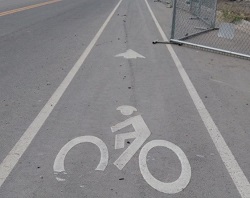Steering towards a better safety culture in road traffic
A strong safety culture can make road safety measures more effective and strengthen relevant attitudes and behaviours. This facilitates driving down the number of road accidents and helps to mitigate their severity. Funded under the EU’s Research and Innovation Staff Exchange (RISE) programme, the TraSaCu(opens in new window) project pointed the way to furthering achievements in this area and promoting a cultural approach to road safety research. Specifically, as assistant project manager Susanne Kaiser explains, “TraSaCu’s overall aim was to apply the concept of safety culture to road safety research in Europe and to translate it into concrete recommendations for decision-makers on various levels.” Leveraging expert knowledge Seconded researchers conducted expert interviews and organised workshops with local stakeholders and practitioners. “We not only consulted them to gain their perspective, but also to sensitise them regarding the concept of safety culture and win some of them over as ‘ambassadors’ who are disseminating TraSaCu’s results themselves,” says Kaiser. All seconded researchers maintained a research diary to reflect on their experiences with the traffic safety culture they were a part of. This information was incorporated into the qualitative analysis of the local safety culture in the form of country reports. “Equally important,” Kaiser underlines, “it was meant to facilitate the researchers to grasp this complex theoretical construct by experiencing it.” The road from theory to application Translating empirical findings into advice for road safety decision-makers was an explicit project objective. “All the achievements of the three-year project would have been diminished in relevance if we would have stopped at collecting and analysing data,” she says. The team identified key factors that play a role in altering the safety culture of social groups for better road safety. They also highlighted the factors that can actually be changed. Part of this work provided the basis for development of an implementation strategy. This offers practical advice on how to deal with defining, measuring, transforming and institutionalising traffic safety culture. It also provides guidance on how to design targeted interventions during this process of change. The stakeholder guidelines give examples of the benefits of considering subculture during the design and implementation of road safety measures. Further, TraSaCu succeeded in igniting discussion in Europe on the relevance of traffic safety culture. Kaiser notes the consortium’s hope “that sooner or later this will also be reflected in research agendas.” Fuelling discussion TraSaCu concluded its work with a webinar to further help translate the empirical work into practical advice for stakeholders and practitioners. The event addressed both the key foundations of traffic safety culture and the practical implications for safety analysis and design of targeted interventions. The webinar attracted participants from 16 countries, including road safety researchers and practitioners, traffic engineers, traffic psychologists, and representatives of public authorities and road safety NGOs. Project partners actively disseminated their work and outcomes. Traditional channels included conferences, newsletters and the project website. TraSaCu partners also organised local workshops with decision-makers and academia, along with presentations to important road safety networks and boards such as the Forum of European Road Safety Research Institutes, the Humanist Network, and the OECD’s International Road Traffic and Accident Database. The project was also represented at the Open Day of the European institutions and at national and international Researchers’ Nights. The stakeholder guidelines and 1-hour webinar will be made available on the project website in due time.



